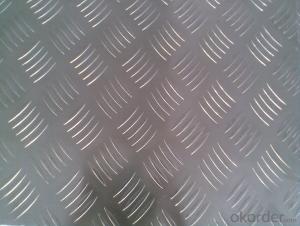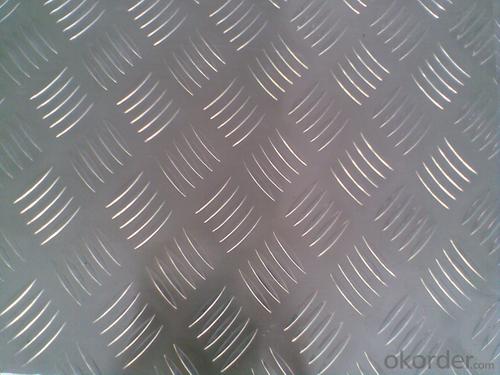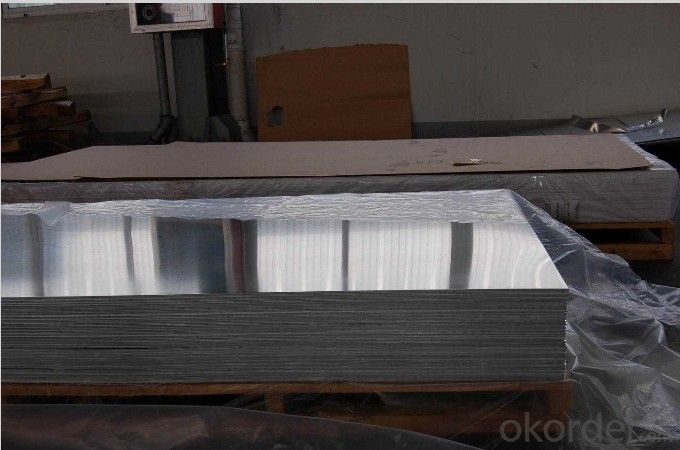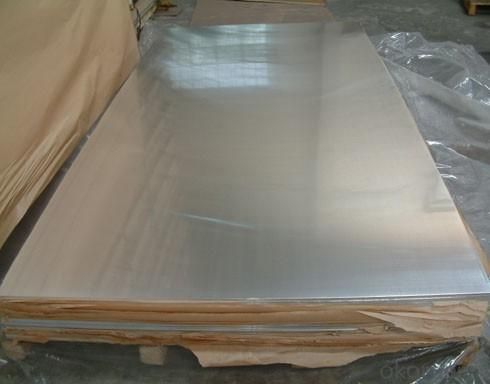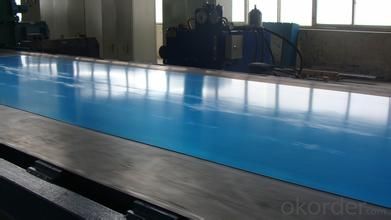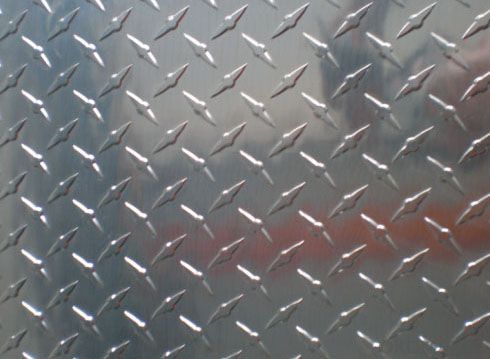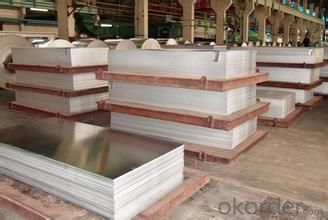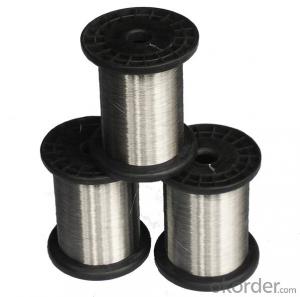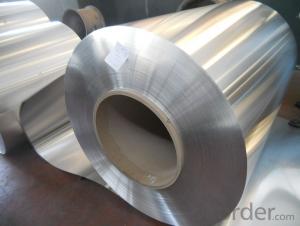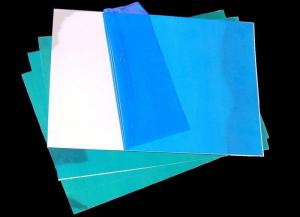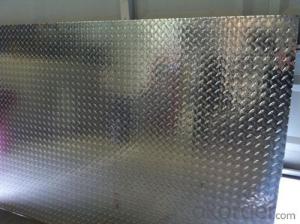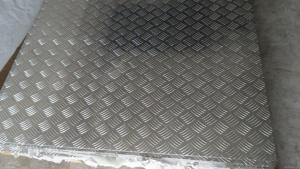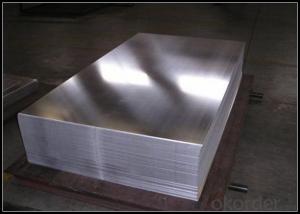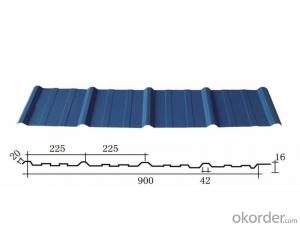4x8 Sheets of 1000 Series Aluminum for Sale
- Loading Port:
- Shanghai
- Payment Terms:
- TT OR LC
- Min Order Qty:
- 5 m.t.
- Supply Capability:
- 20000 m.t./month
OKorder Service Pledge
OKorder Financial Service
You Might Also Like
Specification
Common Aluminum Sheet Coil
1. Place of Origin: ZheJiang, China (Mainland)
2. Model Number: 1050/1060/3003/3004/5052/8011
3. Thickness: 0.20-20.0 mm
4. Width: 1000-1700 mm
Packaging & Delivery
1. Coating: Wooden Pallet for Exporting
2. Delivery Detail: 25-30 Days
Specifications
Aluminum Sheet
1. Alloy: 3003A1050/1060/3003/3004/5052/8011
3. Thickness (mm): 0.20-20.0
4. Width (mm): 1000 mm to 170 0mm, Customer Specific Width
5. Finish: Mill, Customer Specific Finish
Our main products are aluminum alloy thick sheet
PS/CTP plate (1050)
anodic oxidation / 3003/5052 (1060/1070)
automotive aluminum alloy (5754/6111/6061)
soldering material (3003/4004)
IT used materials (3003/5052)
the LED base material, material can (3004/3104)
the tank cover and TAB (5052/5182)
aluminous model with substrate (1100)
medicinal foil (8011)
household foil aluminum foil (1235) (8011)
Car Industry:
Alloy: 5182、5083、5754、5052、5042、6061、6063、6082
Feature: nice appearance, good formability, high safety factor, paint hardening effect is significant.
Product Name | Alloy | Usage |
Automotive sheet: interior panels | 1*** 3*** 5*** | Cars, automotive structural components |
Automotive sheet: structure | 1*** 3*** 5*** 6*** | Cars, automotive structural components |
Automotive sheet: housing,auto body | 3*** 5*** 6*** | Cars, automotive structural components |
Transportation Industry
Alloy: 1060、3003、5052、5754、5083、4104、6061、6016, etc..
Feature: High strength, excellent resistance to stress corrosion and welding performance.
Product Name | Alloy | Usage |
Coal car sheet | 1*** 3*** 5*** | Transporter application areas: coal car plate |
Thick aluminum sheet | 1*** 3*** 5*** 6*** | In industrial applications, such as aluminum cans tanker, auto body outer and inner plates |
Brazing sheet | 4*** composite panels | Oxygen equipment and automotive radiator |
Embossed aluminum sheet | 1*** 3*** 5*** | Nonslip floor decoration; nonslip floor; inside the vehicle with the non-slip floor |
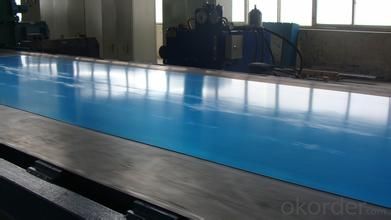
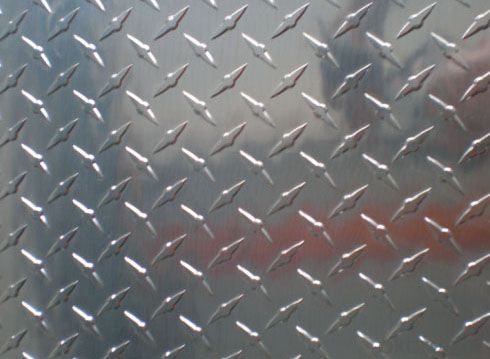
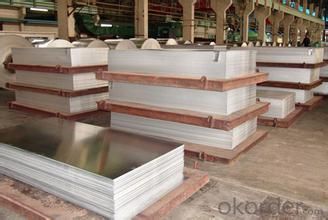
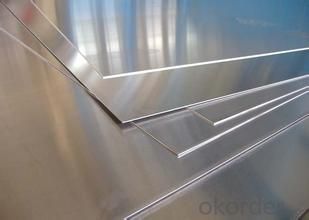
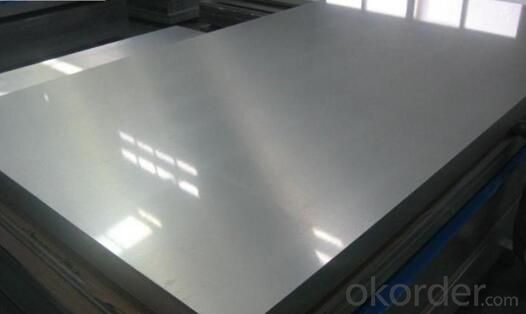
- Q: What are the distinctions between standard aluminum windows and those that are custom-made?
- <p>Standard aluminum windows are mass-produced and come in set sizes and styles, offering affordability and quick installation. They may not fit perfectly into unique spaces and may lack customization options. Custom-made aluminum windows, on the other hand, are tailored to specific dimensions and design preferences, ensuring a perfect fit and enhanced aesthetics. They often come with more features and options, such as energy efficiency, security, and unique styling, but are typically more expensive and have a longer lead time for production and installation.</p>
- Q: 5083 what is the density of the aluminum plate?
- 5083 aluminum alloy is Al-Mg-Si, use a wide range, especially in the construction industry cannot do without this alloy, alloy is the most promising. The main alloying elements as magnesium, has good forming performance, corrosion resistance, weldability, moderate intensity, is a kind of pure aluminum alloy aluminum density: 2.71 tons. / m3 (g / cm3) alloy aluminum density: 2.8 tons / m3 (g / cm3) antirust aluminum density: 2.73 tons / m3 (g / cm3)
- Q: Can aluminum sheets be laser engraved?
- Yes, aluminum sheets can be laser engraved. Laser engraving is a versatile and precise method of marking or engraving various materials, including metals like aluminum. The process involves using a high-powered laser beam to remove the top layer of the aluminum sheet, creating a permanent and precise engraving. Laser engraving on aluminum sheets is commonly used in industries such as signage, jewelry, and industrial manufacturing for applications such as branding, product identification, and decorative purposes. The level of detail and resolution achievable through laser engraving on aluminum sheets depends on the power and settings of the laser machine used.
- Q: Can aluminum sheets be perforated?
- Yes, aluminum sheets can be perforated. Perforation is a process that involves creating holes or punctures in a material, and it can be done on various types of metals, including aluminum.
- Q: What is the typical formability of aluminum sheets?
- The typical formability of aluminum sheets is generally considered to be excellent. Aluminum is a highly malleable metal, meaning it can be easily shaped or formed into various designs without cracking or breaking. This characteristic makes aluminum sheets highly desirable for a wide range of applications, including automotive body panels, aircraft components, and household appliances. Additionally, aluminum has good ductility, which allows it to be stretched and bent without losing its structural integrity. However, it is important to note that the formability of aluminum sheets can vary depending on the alloy composition, thickness, and processing conditions. Therefore, it is essential to consider these factors when choosing the appropriate aluminum sheet for a specific application.
- Q: What are the different types of coatings available for aluminum sheets?
- Aluminum sheets come in various coatings, each with its own unique properties and advantages. 1. Anodized Coating: To create an anodized coating, the aluminum sheet is immersed in an electrolyte bath and an electric current is passed through it. This process forms a durable and corrosion-resistant oxide layer on the sheet's surface. Anodized coatings can be found in different colors and provide excellent resistance to abrasion. 2. Powder Coating: In powder coating, a dry powder is applied to the aluminum sheet and then heated to cure it. This method results in a durable, uniform, and visually appealing finish. Powder coatings are available in a wide range of colors and textures and exhibit excellent resistance to chipping, scratching, and UV fading. 3. Paint Coating: Liquid paint can be used to coat aluminum sheets, offering versatility in terms of color and finish options. Paint coatings provide good resistance against weathering, impacts, and chemicals, although they may not be as long-lasting as anodized or powder coatings. 4. Cladding: Cladding involves bonding a layer of a different metal, such as stainless steel or copper, to the surface of the aluminum sheet. This process enhances protection, improves aesthetic appeal, and enhances the sheet's mechanical properties. 5. Laminating: Laminating consists of bonding a protective layer, such as a film or sheet, to the surface of the aluminum sheet. This coating method offers protection against abrasion, UV rays, and chemicals, while also providing decorative finishes. 6. Organic Coating: Organic coatings, such as polyurethane or acrylic coatings, are applied to aluminum sheets to protect against corrosion, weathering, and chemical exposure. These coatings offer flexibility, good adhesion, and a wide array of color choices. The choice of coating for aluminum sheets depends on specific requirements, including durability, corrosion resistance, aesthetic appeal, and cost-effectiveness.
- Q: how to separate the aluminum sheet in plastic?
- Put them into clean water if both of them won’t react with water, and aluminum sheet will sink into the bottle, then fish up them separately.
- Q: Can aluminum sheets be used in automotive applications?
- Aluminum sheets find their utility in automotive applications. This lightweight and sturdy material brings a multitude of advantages to the manufacturing of automobiles. It is widely employed in the creation of car bodies, hoods, doors, roofs, and various other components. By incorporating aluminum sheets into automotive applications, the overall weight of the vehicle can be reduced, thereby enhancing both fuel efficiency and performance. Moreover, aluminum boasts exceptional resistance to corrosion, making it well-suited for enduring harsh weather conditions and exposure to road salt. Additionally, aluminum can be easily molded and shaped, facilitating intricate designs and detailing on automotive parts. In summary, the utilization of aluminum sheets in automotive applications contributes to the creation of vehicles that are lighter, more fuel-efficient, and visually appealing.
- Q: Can 101 aluminum sheets be polished to a mirror-like finish?
- Yes, 101 aluminum sheets can be polished to a mirror-like finish. Aluminum is a highly malleable and lightweight metal that can be easily polished to achieve a reflective surface. However, the process of achieving a mirror-like finish on aluminum requires several steps and the use of appropriate polishing techniques and materials. To polish aluminum sheets to a mirror-like finish, you would typically start by cleaning the surface thoroughly to remove any dirt, debris, or oxidation. Next, you would need to sand the surface using progressively finer grits of sandpaper to remove any imperfections or scratches. This step is crucial to create a smooth and even surface that can be polished to a high shine. After sanding, you would move on to the polishing stage. There are various methods and materials that can be used for polishing aluminum, including abrasive compounds, buffing wheels, and polishing pads. These tools are used to apply pressure and friction to the aluminum surface, which helps to remove any remaining scratches and imperfections and create a smooth, reflective finish. Finally, to achieve a true mirror-like finish, a process called buffing or burnishing is often employed. This involves using a soft cloth or a specialized buffing wheel to apply a polishing compound to the surface of the aluminum. The compound helps to further refine the surface and enhance its reflective properties, resulting in a mirror-like finish. It's worth noting that achieving a mirror-like finish on aluminum can be a time-consuming and labor-intensive process, especially when dealing with a large number of sheets like 101. Additionally, the quality of the aluminum sheets themselves and the skill level of the person performing the polishing can also influence the final result. However, with the right materials, techniques, and patience, it is indeed possible to polish 101 aluminum sheets to a mirror-like finish.
- Q: What are the different types of coatings applied to aluminum sheet?
- Aluminum sheet can be coated with various types of coatings, each possessing its own unique properties and advantages. Some commonly used coatings are as follows: 1. Anodizing: This process involves the formation of a protective layer of aluminum oxide on the sheet's surface through electrochemical means. Anodizing enhances the appearance of aluminum by creating a vibrant and long-lasting finish, while also providing excellent resistance against corrosion. 2. Powder Coating: A dry powder is applied to the aluminum sheet using electrostatic methods, and then cured under heat to form a robust and protective coating. Powder coating offers outstanding durability, chip and scratch resistance, as well as a wide range of color and finish options. 3. Paint: Aluminum sheet can be coated with paint, offering both aesthetic appeal and protection. The paint is applied as a liquid and then cured under heat to create a strong and durable coating. Paint coatings provide versatility and customization options, including a vast array of colors and finishes. 4. Laminating: To provide additional protection against scratches, abrasion, and UV damage, a thin layer of protective film or laminate is applied to the surface of the aluminum sheet. Laminating enhances the appearance of the sheet while ensuring its long-lasting durability. 5. Conversion Coatings: Chemical treatments are employed in conversion coatings to convert the surface of the aluminum sheet into a more corrosion-resistant compound. Examples of conversion coatings include chromate conversion coatings and phosphating, which create a protective layer, improving the adhesion of subsequent coatings. 6. Clear Coatings: Clear coatings, such as lacquer or clear powder coat, can be utilized to safeguard aluminum sheet against oxidation and corrosion while maintaining its natural appearance. Clear coatings are commonly used when the goal is to preserve the metallic look of the aluminum. These are just a few illustrations of the diverse range of coatings that can be applied to aluminum sheet. The selection of the appropriate coating depends on factors such as desired appearance, required level of protection, and the specific application of the aluminum sheet.
Send your message to us
4x8 Sheets of 1000 Series Aluminum for Sale
- Loading Port:
- Shanghai
- Payment Terms:
- TT OR LC
- Min Order Qty:
- 5 m.t.
- Supply Capability:
- 20000 m.t./month
OKorder Service Pledge
OKorder Financial Service
Similar products
Hot products
Hot Searches
Related keywords
